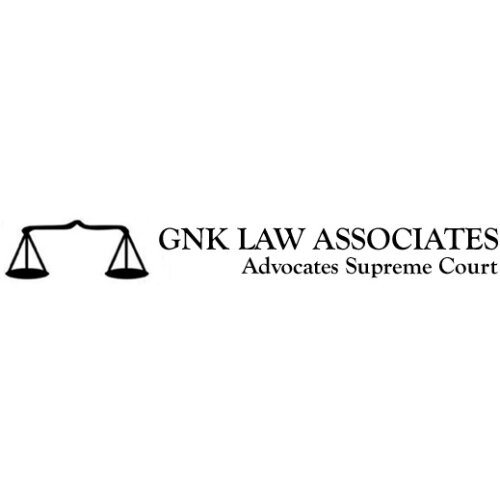Best Foreclosure Lawyers in Delhi
Share your needs with us, get contacted by law firms.
Free. Takes 2 min.
Free Guide to Hiring a Real Estate Lawyer
List of the best lawyers in Delhi, India
About Foreclosure Law in Delhi, India
Foreclosure is a legal process through which a lender attempts to recover the outstanding debt by selling a property when a borrower fails to make mortgage payments. In Delhi, India, foreclosure is governed by the Transfer of Property Act, 1882, and the Recovery of Debts Due to Banks and Financial Institutions Act, 1993. It is essential to understand the foreclosure process and seek legal advice to protect your rights and interests.
Why You May Need a Lawyer
While dealing with foreclosure, you may require the expertise of a lawyer in the following common situations:
1. Mortgage Agreement Review: A lawyer can help you understand the terms and conditions of your mortgage agreement, ensuring you are aware of your rights and responsibilities.
2. Negotiation and Mediation: If you are struggling to make mortgage payments, a lawyer can assist in negotiating with the lender to find alternatives such as loan modification, repayment plans, or foreclosure avoidance programs.
3. Foreclosure Defense: If foreclosure proceedings have been initiated against you, a lawyer can protect your rights by examining the legality of the process, ensuring proper documentation, and presenting a strong defense in court.
4. Loan Modification or Restructuring: A lawyer can assist in modifying the terms of your mortgage, reducing monthly payments, or extending the loan tenure, based on your financial situation.
5. Bankruptcy Guidance: If you are facing severe financial difficulties, a lawyer can guide you through the bankruptcy process, explain the implications, and determine whether it is an appropriate option.
Local Laws Overview
Foreclosure in Delhi, India is governed by specific laws and regulations. Here are the key aspects to consider:
1. The Transfer of Property Act, 1882: This act outlines the rules regarding mortgages and foreclosure proceedings in Delhi, India. It establishes the rights and obligations of borrowers and lenders in a mortgage agreement.
2. The Recovery of Debts Due to Banks and Financial Institutions Act, 1993: This act allows banks and financial institutions to recover outstanding debts by initiating legal action, including foreclosure, against defaulting borrowers.
3. Documentation and Notices: According to local laws, lenders must provide proper notices to borrowers before initiating foreclosure proceedings. It is crucial to understand the required documents and timelines related to these notices.
4. Redemption Period: Delhi law allows borrowers a redemption period after the initiation of foreclosure proceedings. During this time, borrowers can pay off the outstanding amount and reclaim their property.
Frequently Asked Questions
Q1: Can foreclosure be avoided in Delhi, India?
A1: Yes, foreclosure can be avoided in Delhi, India. Seeking legal assistance to negotiate with the lender and exploring alternatives like loan modification or repayment plans can help prevent foreclosure.
Q2: How long does the foreclosure process typically take in Delhi?
A2: The foreclosure process duration varies depending on various factors, including the complexity of the case and court's schedule. It can take several months to a few years for the process to complete.
Q3: What options do I have during the redemption period?
A3: During the redemption period, you have the right to pay off the entire outstanding debt, including the principal amount, interest, and any additional costs, to reclaim your property and avoid foreclosure.
Q4: Can I challenge the foreclosure initiated against me?
A4: Yes, it is possible to challenge foreclosure proceedings if you believe there are legal irregularities, improper documentation, or if you were not provided the required notices. Consulting with a lawyer can help you understand the viability of your challenge.
Q5: How can a lawyer assist with loan modification?
A5: A lawyer can represent your interests during loan modification negotiations with the lender. They can help present your financial situation, guide you through the required documentation, and ensure the modified terms are fair and favorable for you.
Additional Resources
Here are some resources, governmental bodies, and organizations related to foreclosure that can be helpful for seeking legal advice:
1. Delhi High Court: The official website of the Delhi High Court offers information on foreclosure laws, judgments, and procedures within the jurisdiction. (Website: www.delhihighcourt.nic.in)
2. Reserve Bank of India: The Reserve Bank of India ensures the smooth functioning of the banking sector in India. They provide guidelines, circulars, and information on foreclosure regulations. (Website: www.rbi.org.in)
3. State Bar Council: The Delhi State Bar Council has a directory of registered lawyers. You can seek a lawyer's assistance for foreclosure-related legal matters. (Website: www.delhistatebarcouncil.com)
Next Steps
If you find yourself in need of legal assistance regarding foreclosure in Delhi, India, here are the recommended steps:
1. Gather Documents: Collect all relevant documents related to your mortgage, foreclosure notices, and communication with the lender.
2. Research Lawyers: Look for lawyers specializing in foreclosure or property law in Delhi. Read reviews, compare their expertise, and shortlist potential lawyers.
3. Consultation: Schedule consultations with shortlisted lawyers to discuss your situation, understand their approach, and assess their suitability to handle your case.
4. Legal Representation: Once you have chosen a lawyer who meets your requirements, engage their services and start working closely with them to protect your rights and navigate the foreclosure process.
Lawzana helps you find the best lawyers and law firms in Delhi through a curated and pre-screened list of qualified legal professionals. Our platform offers rankings and detailed profiles of attorneys and law firms, allowing you to compare based on practice areas, including Foreclosure, experience, and client feedback.
Each profile includes a description of the firm's areas of practice, client reviews, team members and partners, year of establishment, spoken languages, office locations, contact information, social media presence, and any published articles or resources. Most firms on our platform speak English and are experienced in both local and international legal matters.
Get a quote from top-rated law firms in Delhi, India — quickly, securely, and without unnecessary hassle.
Disclaimer:
The information provided on this page is for general informational purposes only and does not constitute legal advice. While we strive to ensure the accuracy and relevance of the content, legal information may change over time, and interpretations of the law can vary. You should always consult with a qualified legal professional for advice specific to your situation.
We disclaim all liability for actions taken or not taken based on the content of this page. If you believe any information is incorrect or outdated, please contact us, and we will review and update it where appropriate.















